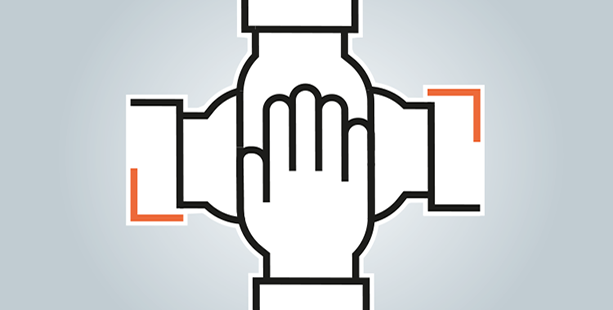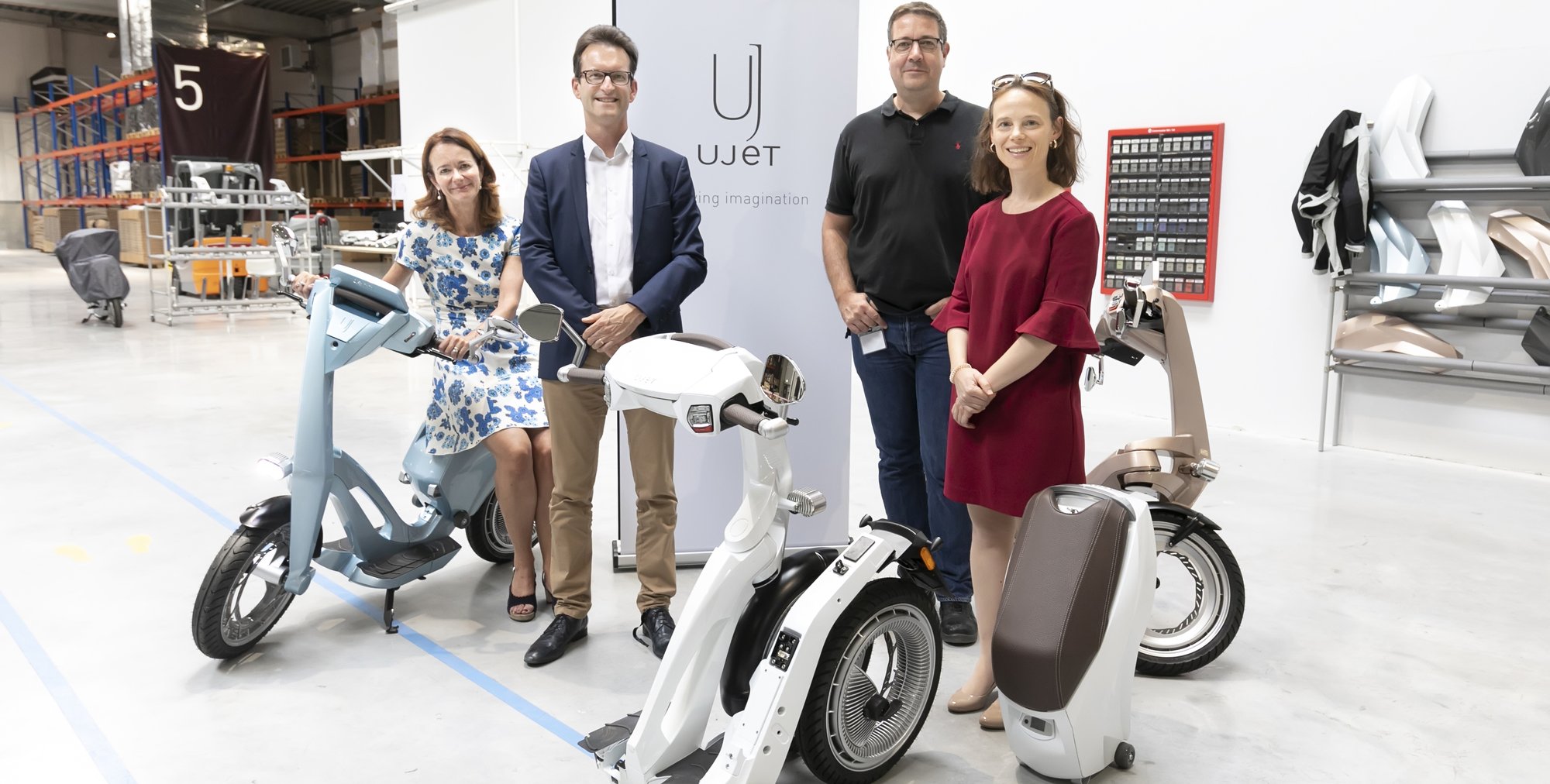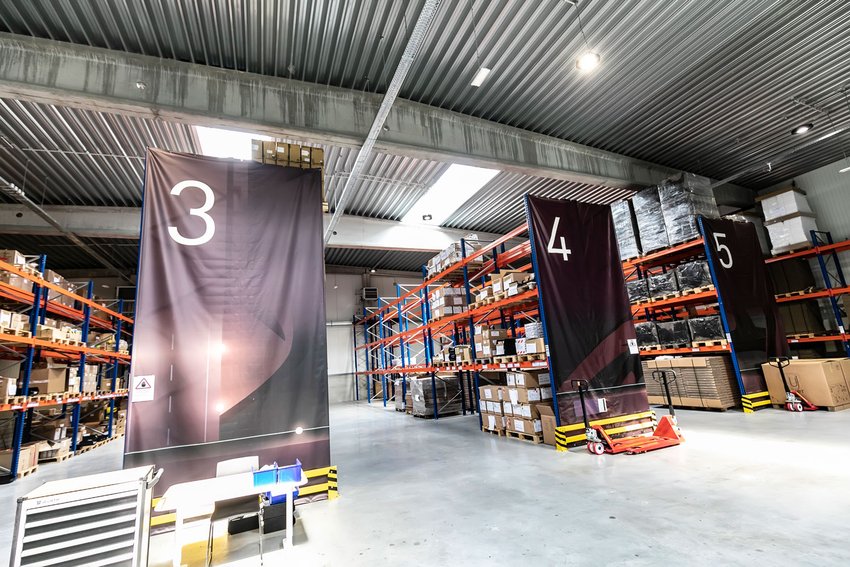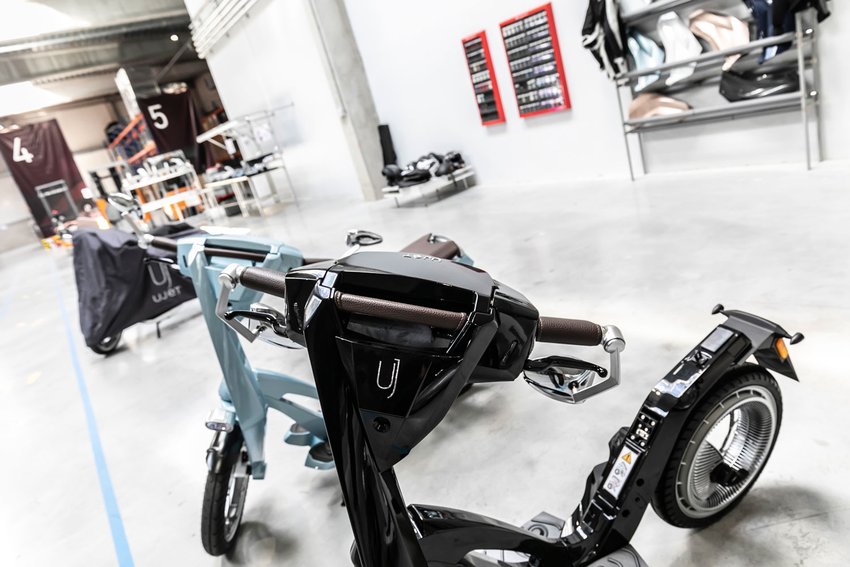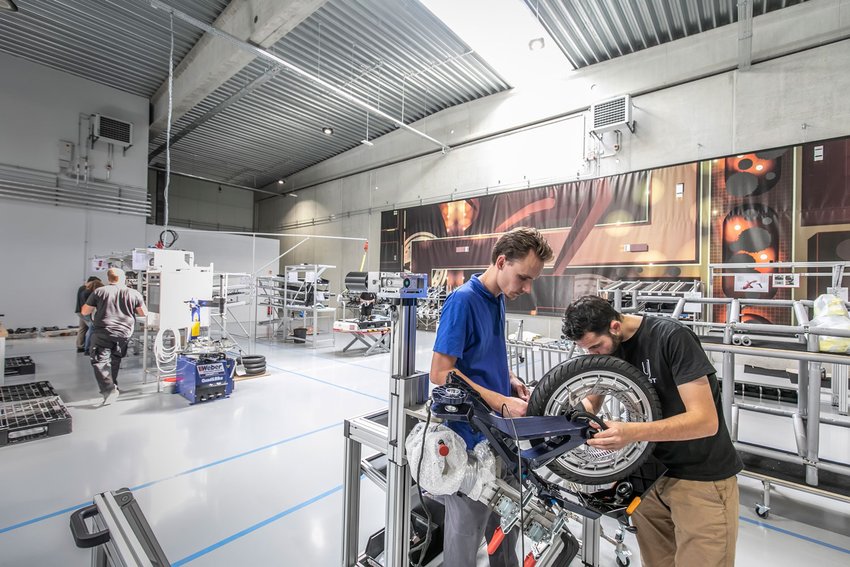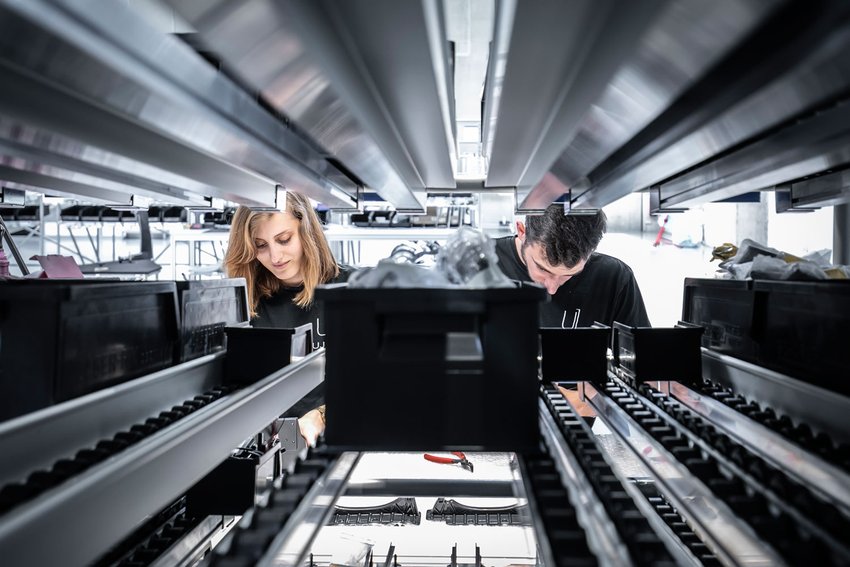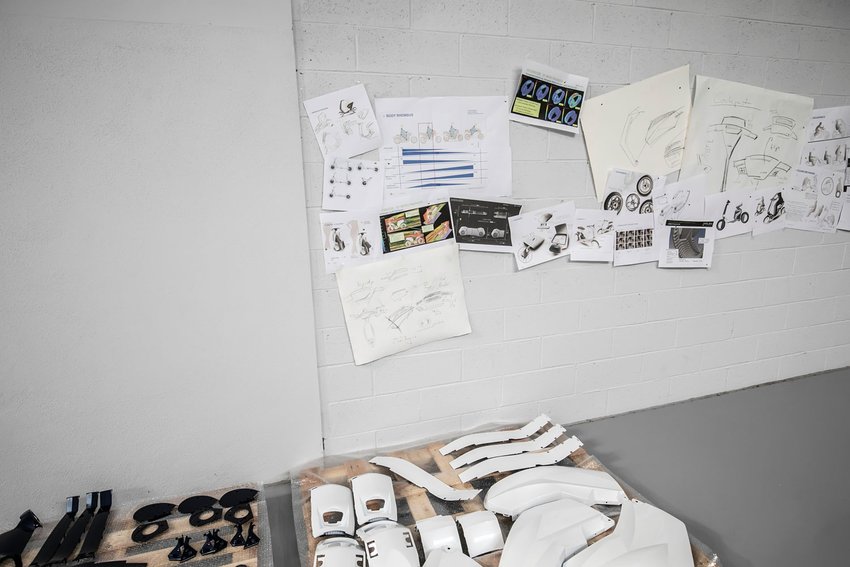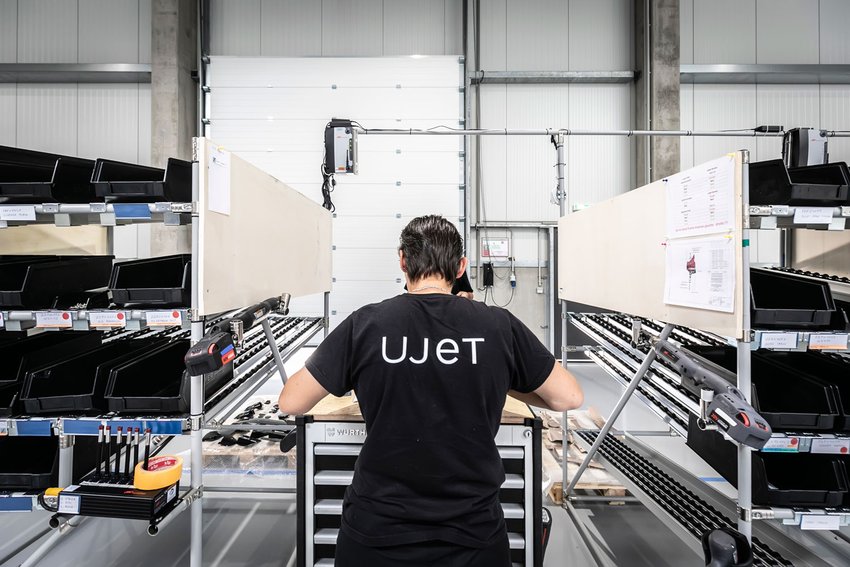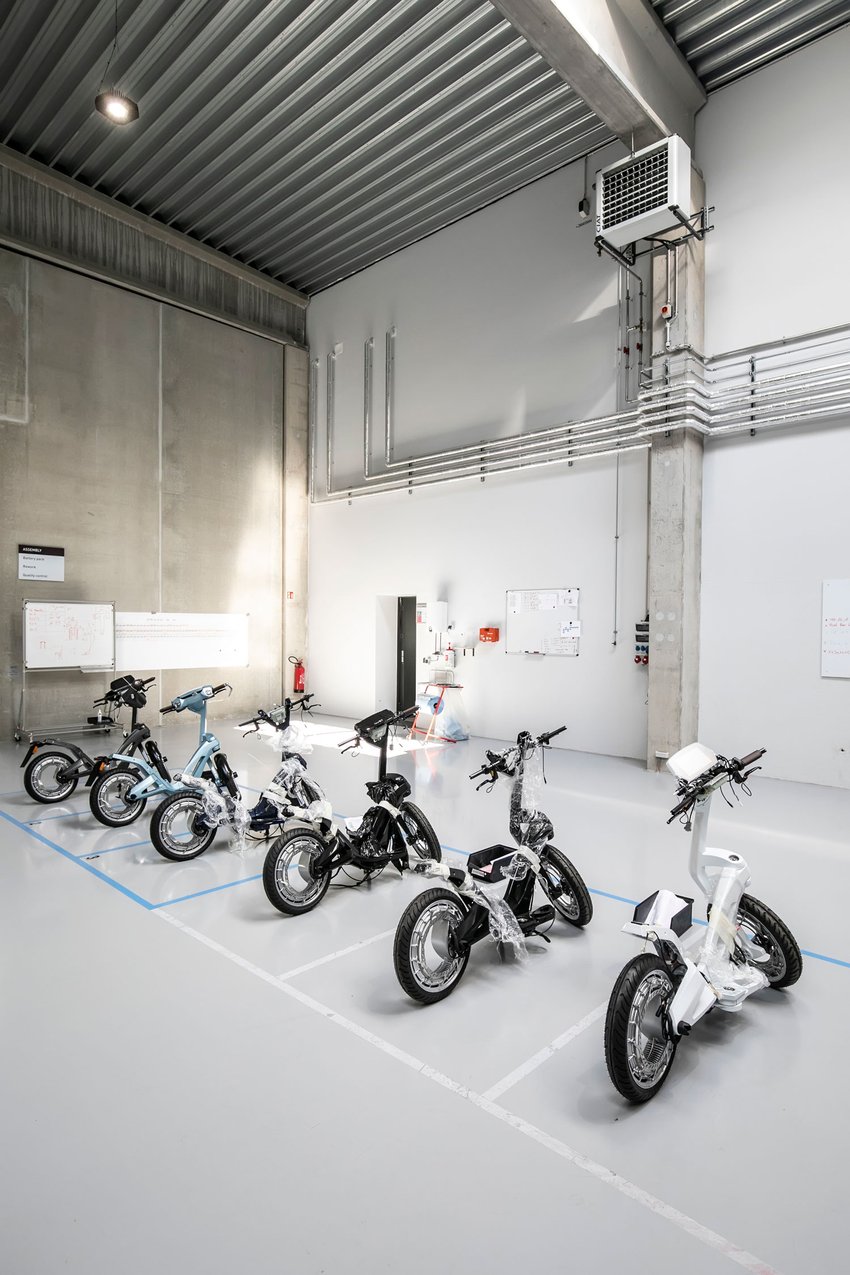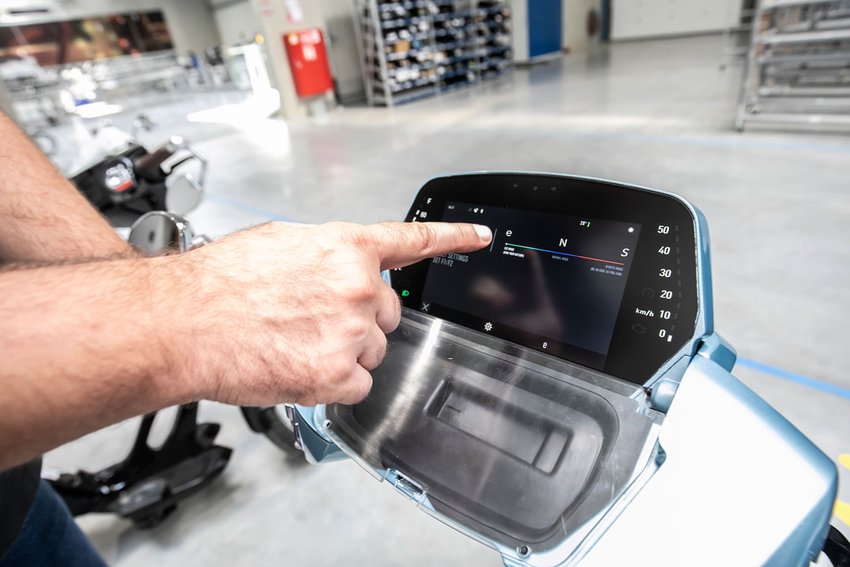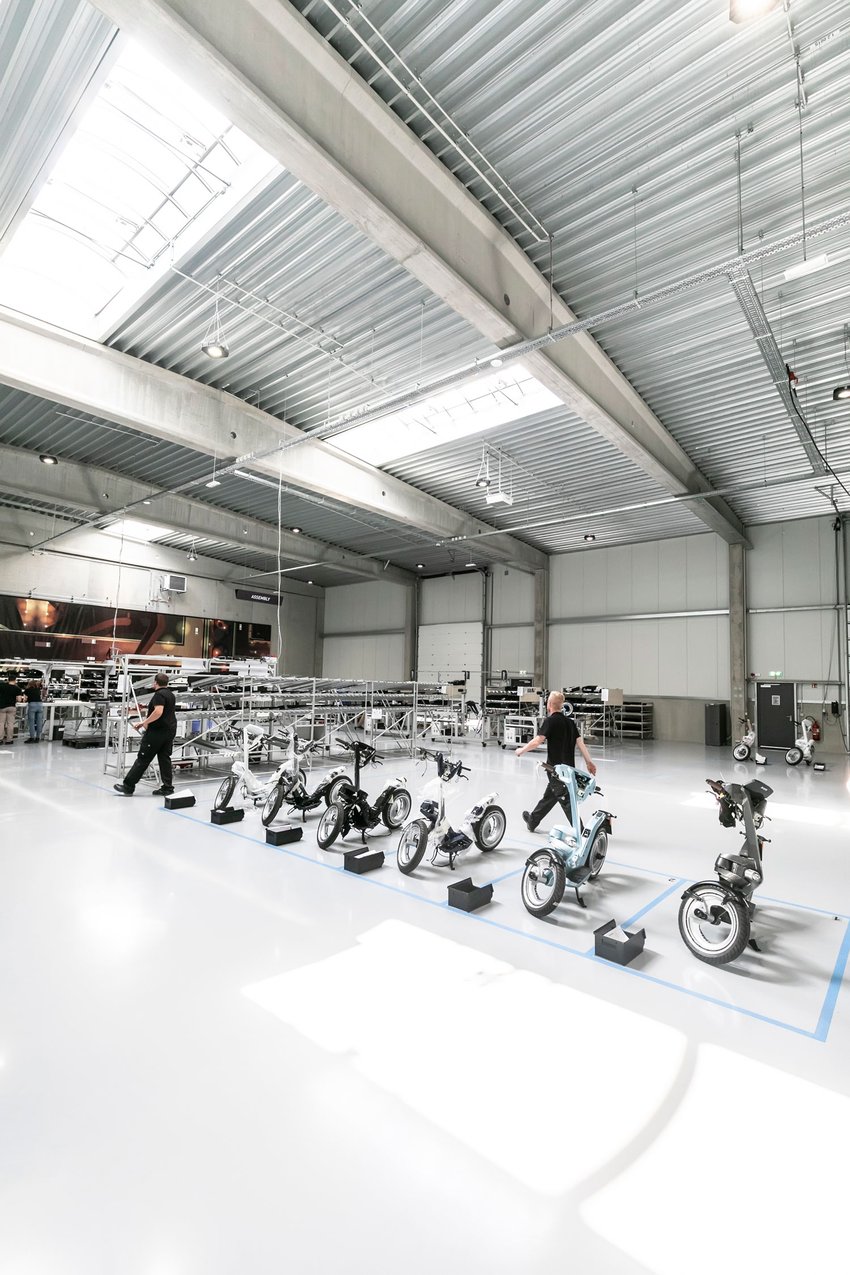

Ujet opened, in 2017, the first electric scooter factory in Foetz to produce a new generation of electric scooters. The technology start-up has developed a new mobility solution that paves the way to a low-carbon future and addresses today's urban challenges.
Ujet was founded in 2015 as a spinoff of OCSiAI, the first company in the world capable of producing industrial-scale volumes of single-wall carbon nanotubes. Through Ujet, OCSiAI sought to demonstrate how high-performance materials can be transformed into exciting, sustainable and functional products for our everyday lives. What started off as a proof of concept, quickly gave birth to a financially viable product, combining clean technology, audacious design grounded in material science and technology. Ujet wants to redefine the way city lovers' move for the better. The mission is to create the perfect balance between high-tech, sustainable thinking and lifestyle.
The Ujet electric scooter is equipped with the lightest tire in its class, the world's first TUBALL augmented tire. The advanced materials within the tire increase wet and dry grip and, therefore, increase traction. The electric scooter is the first of many future products that also thanks to the latest achievements in the material science will enable a better environment for urbanites. OCSiAI believes in the new materials revolution (using nano-technology for lighter, stronger and more conductive composites, so called nano-augmented) to cope with the scarcity of natural resources (doing more with less) and to help solving societal and environmental issues with new high added value consumers applications.
The scooters are noiseless and with zero tail-pipe emissions, it contributes to a healthier, quieter, and cleaner environment. Key to reducing global GHG emissions and enhancing air quality. Ujet is designed for optimum use in cities. Intended for door-to-door mobility, it takes up much less space than a car for driving and parking, and represents a fast mode of urban transportation. Foldable and equipped with a compact and rollable battery, it requires no dedicated charging infrastructure on-street.
Ujet has now over 50 employees, who are based in Leudelange and Foetz in Luxembourg and partly in its R&D center in Ulm in Germany. The sales will start in autumn 2018. Ujet's aim is to launch our electric scooter in Luxembourg, Paris, Milan, Monaco and Barcelona by the end of 2018.
Interview with Hugues Despres, CEO of Ujet International.
What projects are you currently working on?
Cities are increasingly playing a role in tackling environmental and societal challenges. Local players now sit at the negotiating table whenever solutions are to be found for global challenges. While mobility overall is being revolutionized, we focus on the urban dimension of mobility because it plays a key role in the quality of life in an increasingly urbanized world. Ujet seeks to use cutting-edge technology to revolutionize urban mobility. In our opinion, dense cities of the future can be cleaner, greener and more sustainable while still offering the same level of freedom and opportunities.
Our first product, the Ujet electric scooter is set to redefine urban mobility - putting "ease, joy and practicality back" into getting around cities. Designed from the ground up, the stylish scooter combines smart connectivity and high-performance materials typically found in the aerospace sector with clean technology and refined design - making it the most advanced in its class.
What successes are you particularly proud of?
Our aim is to provide sustainable solutions to mobility challenges facing global megacities today. As a result, we take sustainability very seriously, embedding it in our business strategy and throughout our value chain. Many cities are increasingly afflicted by poor air quality, which is directly linked to health issues. This is a global problem yes, but urban citizens suffer from it the most.
Our scooter emits zero emissions. When it comes to noise, Ujet's electric engine can make cities more peaceful by eliminating the high-pitched sound of traditional ICE scooters. Regarding congestion, Ujet has a decisive impact. Thanks to its compact, lightweight, foldable frame, it can be taken everywhere and stored in places not normally suited to full-sized vehicles or scooters. Whether parked in the corner of a garage, in a basement, or a tight alley, our scooter can offer the mobility of a full-sized vehicle in places where space is at a premium. All of it can improve the urban experience for city dwellers, empowering them to move freely in a smart, unique, and sustainable way.
What are the biggest challenges your sector is facing?
Ujet answers the need for low-carbon mobility solutions in global cities. It is paving the way for a new generation of electric vehicles that are designed to address today's and tomorrow's urban mobility issues. Transportation is also the fastest growing source of CO2 emissions, which poses enormous threats and challenges in terms of climate change. Our technology has been designed to help addressing those challenges. Existing urban mobility solutions can't keep up with the growth of our cities and are not solving increased congestion and pollution. The only answer is to redefine urban mobility by making a product that is more relevant to the problem.
If you could change one thing about your sector, what would it be? How could the Chamber of Commerce support you?
The market for EVs currently represents a minority segment, and market penetration is only estimated to reach 2 to 8% between 2020 and 2025. However, with the right policy support, EV adoption can be accelerated. Electrification is already a key pillar in the EU Commission's strategy for low-emission mobility; and cities including Barcelona, Milan and Paris are taking ambitious actions that accelerate EV adoption. E-scooters present a cost-effective and rapidly scalable solution to social, environmental and economic challenges in cities. To realise their potential for positive impacts on air pollution, congestion and carbon emissions, cities need to encourage behavior changes and incentivise a switch from conventional vehicles to e-scooters at a larger scale. While many policy measures focus on electric cars and public transportation, more initiatives that actively promote the uptake of electric scooters in cities are needed (e.g. provision of grants and tax incentives that encourage the purchase of e-scooters; allocation of free parking spaces for e-scooter users; development of dedicated road infrastructure for e-scooters). Governments and cities have powerful policy tools available to make those changes at large scale.
Text: Corinne Briault / Ujet - Photos : Laurent Antonelli / Agence Blitz
Pièces-jointes
Visite_d_entreprise_-_UJET.pdf
PDF • 209 Ko

